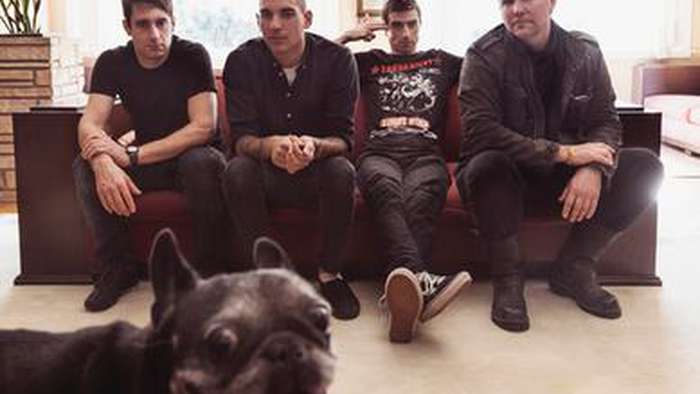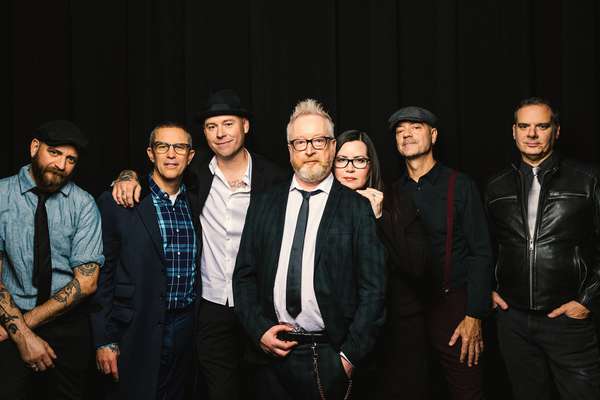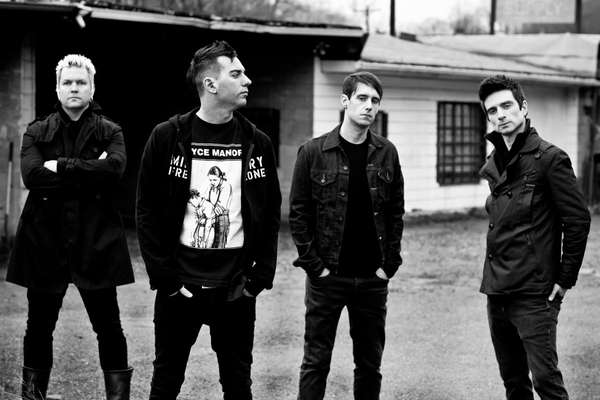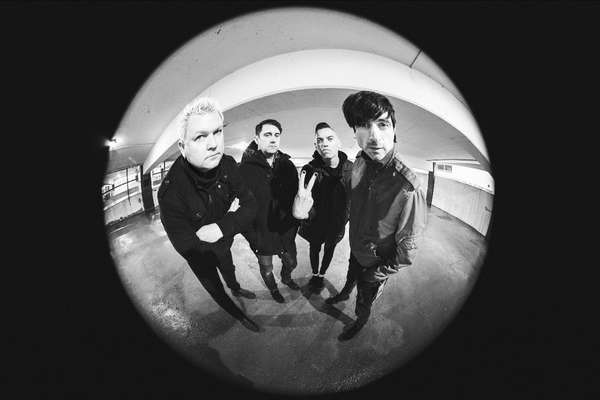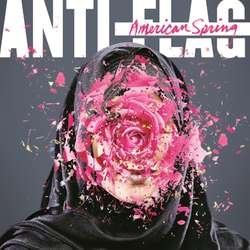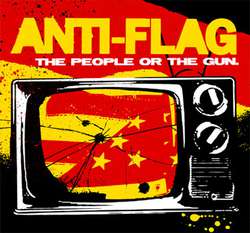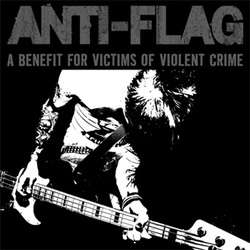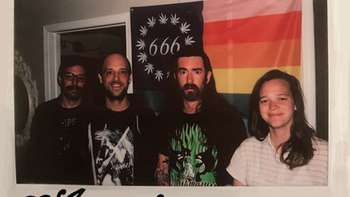Anti-Flag have never shied away from exploring the complex political and social issues that affect their native United States while also maintaining a dogged awareness of world affairs. This naturally finds its way into the punk band's searing, abrasive music and with their tenth album American Spring they continue to wear their political ideals on their sleeves. Bassist Chris #2 tells SPB about how the band decided what direction American Spring would take, the impact that the Michael Brown verdict had on him and how he reached a point where he wasn't sure if he even wanted to be in a band any more.
Scene Point Blank: American Spring's title was inspired by the Arab Spring. Do you think there will ever be the potential to have a citizen uprising of the same magnitude in the US?
Chris #2: I have to believe that paradigm shifts are possible. History has proven non-violent revolution to be possible. I think it's fair to cherry pick the great ideas and social movements of history and want to apply them to the now. Direct democracy is possible. The removal of corporate interest from global politics is possible. But power doesn't surrender easily.
Scene Point Blank: Anti-Flag's output is known for being overtly political. How do you decide which topics you will cover on an album? How do you prioritise which issues you'll address or explore in your music?
Chris #2: Whoever is most passionate tends to win. We believe in each other and our barometers for what we consider important. So we back each other a lot. There's endless fodder for socially conscious music and art. If we don't write about it we believe someone else will. We are not the sole outlet for these ideas, we are well aware of that. So we make sure to speak only to issues we truly care about, otherwise it does not translate well. We have learned this lesson the hard way, for sure.
Scene Point Blank: How did you learn this lesson the hard way, what happened?
Chris #2: We can only speak to issues we are passionate about. People can sense when you're commenting on something that doesn't come across as sincere. It comes down to the individual band members. When we are angry or concerned, or where we are at in our personal lives: that drives us to specific issues. It's all about tapping into specific moments of empathy. So the hard way is when only one member champions a cause and we don't get behind it, those songs tend to die. Either they never get fleshed out or recorded, and [are] never played live. We don't feel comfortable playing songs that all 4 of us don't believe in 100 percent.
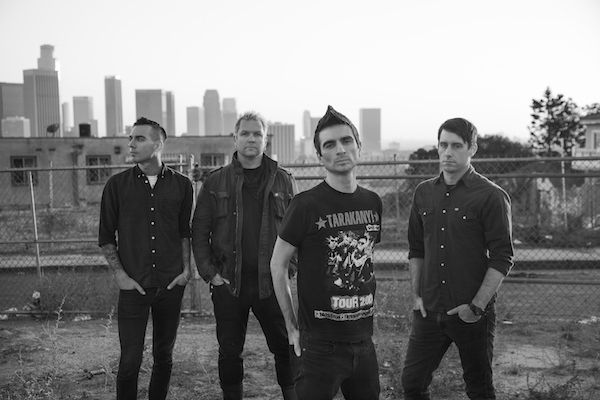
Scene Point Blank: When you released 2003's The Terror State there were problems with distribution because of the controversial cover art and the content which criticised the Iraq war. Do you anticipate encountering similar difficulties with American Spring because of the potentially divisive nature of the cover art?
Chris #2: Actually this artwork has been met with more discussion than even The Terror State and its "banned" art. People were sensitive to all things Anti-Flag after 9/11/2001. The Terror State art and the drama that surrounded it were more of a complication from people not knowing how to react after that date in history.
Our dear friend, and talented artist, [Doug Dean] created the American Spring artwork as a piece to create dialogue on what is violence and perceived as violent, to challenge our own prejudice and privilege. I can't say enough about Doug and his talent. The art goes lock and step with the idea behind the songs on the record. We are so blown away by the reaction that it has received so far.
Scene Point Blank: Is there a particular response that the album has got that has surprised you?
Chris #2: I haven't read many reviews, but just people writing online, my friends calling me and texting me. People commenting on the art. It has been really cool.
Scene Point Blank: I read in an interview that you were “weeping like a baby” when you found out that the police officer who shot Michael Brown wouldn't have to stand trial. How do you feel about the situation in Baltimore? Are you hopeful that things will eventually change?
Chris #2: I think there was a direct correlation between the "riots" and direct action in Baltimore and the subsequent charging of the police officers who had a hand in killing Freddie Gray. I also believe the world is watching because of the outlandish show of American injustice in Ferguson and New York City, over the deaths of Brown and Garner, was also very prevalent in charging the officers in Baltimore. I was reminded of my own encounters with a very flawed system, my own encounters with loss and grief, during the Brown verdict. It was an emotional experience for me.
Scene Point Blank: "The Debate Is Over (If You Want It)" centres around climate change deniers. This recent exchange in the Florida Senate shows there are still people who are required to ignore the existence of climate change, seemingly as part of their job. Do you ever lose hope or feel there are some things ingrained in elements of American society relating to climate change denial that can't be changed?
Chris #2: These folks are such a dying breed. It's hard to take any of them seriously. Of course there are moments when you feel the hill is far too large to climb, but fortunately for us in the band we get to tour, travel the world, meet amazing people every day who give a shit about way more than just themselves. That interjection of optimism goes a very long way.
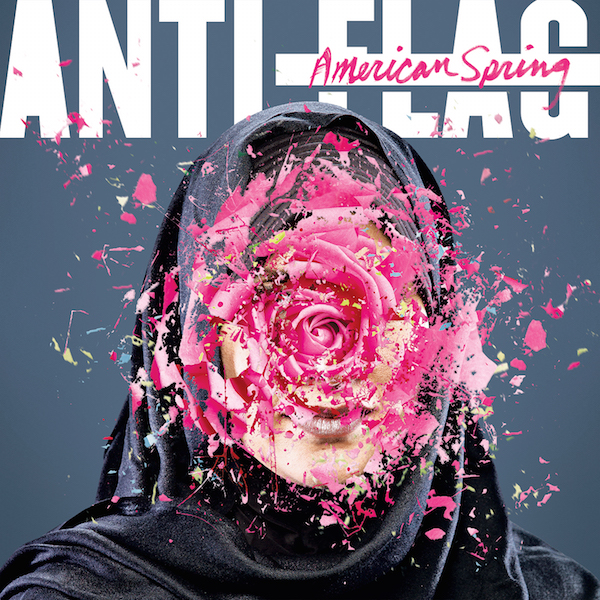
Scene Point Blank: You've gone through some unimaginable personal struggles over the past few years, especially with the tragic circumstances of your sister's death. These struggles seem to come to the fore on "Believer." When you were working on American Spring did you feel a compulsion to write a song that dealt with these issues?
Chris #2: I had a tremendous amount of life upheaval before writing this record. I wasn't sure I wanted to do it. Or be in a band. Or do anything for that matter. Again, in our travels and through meeting people I've recognized the empathy we share. That's what separates our scene from the status quo. I felt people should know where my personal sense of empathy comes from and hopefully others can find some solace in it the same way I've found solace in others. "Believer" and many of the songs on American Spring are examples of that. It's the first time that I've written this way. It's less of us as a band commenting on issues as spectators, but commenting on them from inside.
Scene Point Blank: Rancid's Tim Armstrong and Rage Against the Machine's Tom Morello both appear on American Spring. Are there any other musicians that you hope to collaborate with in the future?
Chris #2: Mick Jones. Jello Biafra. Please. Thanks.
Scene Point Blank: Are there any stand out moments where a fan has told you about the impact your music has had on their political awareness, or if they've read a book that Anti-Flag has recommended that has changed their perspective?
Chris #2: We have been so fortunate to meet people who have gone on to live amazing lives because of the moments they received from the community that surrounds bands and artists like Anti-Flag: ACLU lawyers, social workers. Our dear friend Terry who runs our website, which he started when he was 17, now at 27 runs a co-op, led Occupy protests, just is an amazing person and activist. There are endless stories of tangible victories in an arduous world that we gain tremendous optimism from.
